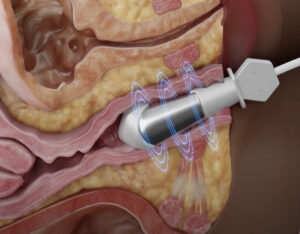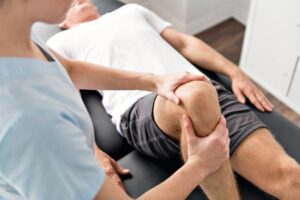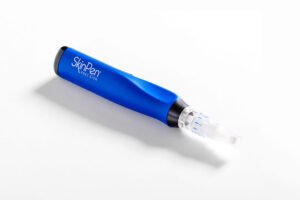The American Urological Association states that urinary incontinence is a prevalent health issue in the US population. It is one of the most common concerns that impact many people, especially women.
A recent survey indicated that about 30 percent of females with ages 30-60 are suffering from it. Bladder control concerns can be uncomfortable and stop people from engaging in their normal activities. However, incontinence can usually be stopped or prevented. Learn more about Urinary Incontinence in the article below.
What is Urinary Incontinence?
Urinary incontinence signifies that a person leaks urine involuntarily. Since this can occur to anyone, urinary incontinence, also called the overactive bladder, is more typical in older women. Bladder control problems can be uneasy and drive people to avoid their normal daily routine. However, incontinence can usually be controlled or treated.
Symptoms
A lot of people encounter frequent, minor leaks of urine. While others may experience urinary incontinence in small to moderate amounts of urine more often. Kinds of urinary incontinence comprise:
- Stress incontinence
- Urge incontinence
- Overflow incontinence
- Functional incontinence
- Mixed incontinence
Causes
Urinary incontinence can be driven by day-to-day habits, existing medical ailments, or physical issues. A complete evaluation by your physician can help resolve what’s causing your incontinence.
Temporary Urinary Incontinence
Particular beverages, foods, and medications may serve as diuretics that stimulate your bladder and enable you to urinate a lot. These include alcohol, caffeine, soda, spicy food, chocolates, and artificial sweeteners.
Constant Urinary Incontinence
Urinary incontinence can also be a continuous disease caused by underlying bodily issues or changes such as pregnancy, childbirth, aging, menopause, prostate enlargement and cancer, neurological disorders, and tumors.
Treating Urinary Incontinence
Nowadays, more remedies and practices are available to address urinary incontinence than ever before. The preference for treatment relies on the kind of bladder control issue you are experiencing and your overall condition. A variety of therapies may support you to overcome urinary incontinence. Your doctor may advise you to attempt the following treatments:
Bladder Control Training
- Pelvic muscle exercises or Kegel Exercises support the muscles that sustain the bladder helping you retain urine in your bladder and stop the leaks.
- Urgency suppression enables you to control intense impulses to urinate and make it to the toilet on time.
- Timed voiding is utilized to aid in managing your bladder by scheduling time to urinate.
Medical Treatments
1. Medications
The medications can be in various ways and may be given to help with bladder control problems. It is most useful to discuss it with your doctor concerning the medications that would function satisfactorily for you.
2. Vaginal estrogen ointment
This may keep you feeling relief from stress incontinence. A typical amount of estrogen cream is used instantly on the vaginal walls and urethral tissue.
3. Bulking agents
This can be used to assist seal the bladder opening. Physicians can infiltrate a bulking gel that concentrates the parts around the urethra. This can reduce stress incontinence but may need to be repeated.
4. Medical devices
A catheter is one of the many devices that can help manage urinary incontinence. It empties urine from your bladder. a urethral insert that helps prevent leakage; and a vaginal pessary ring that provides pressure to lessen leakage.
5. Biofeedback
This form of medication uses detectors to make you mindful of cues from your body to recover control over the muscles in your bladder and urethra.
6. Electrical nerve stimulation
This treatment transmits temperate electric currents to the nerves near the bladder that enable you to control urination and your bladder’s reflexes.
7. Surgery
An operation can usually enhance or heal incontinence if it is driven by a shift in the function of the bladder or blockage caused by an enlarged prostate.
Tighten Your Pelvic Floor and Vaginal Muscles with VTone
 If you’re in search of a clinic to help you restore your self-confidence and quality of life without surgery or prolonged downtime, NewU Wellness is the key! Treat your bladder issues by tightening the pelvic floor and vaginal muscles with NewU Wellness’ VTone. Our treatments such as VTone can support the rehabilitation of weak pelvic floor muscles for the remedy of stress, urge, and mixed urinary incontinence, especially in women.
If you’re in search of a clinic to help you restore your self-confidence and quality of life without surgery or prolonged downtime, NewU Wellness is the key! Treat your bladder issues by tightening the pelvic floor and vaginal muscles with NewU Wellness’ VTone. Our treatments such as VTone can support the rehabilitation of weak pelvic floor muscles for the remedy of stress, urge, and mixed urinary incontinence, especially in women.
VTone is a mild FDA-cleared technology created to supply intravaginal electrical muscle stimulation (EMS) and neuromuscular re-education. At NewU Wellness in Fort Myers, FL, our experienced physicians and friendly staff will guide you all the way. We will get rid of your stress, urge, and mixed urinary incontinence quickly and painlessly.
Learn more about our VTone treatment to help you keep young! Call NewU Wellness at (239) 789-2184 or schedule an appointment online today!






